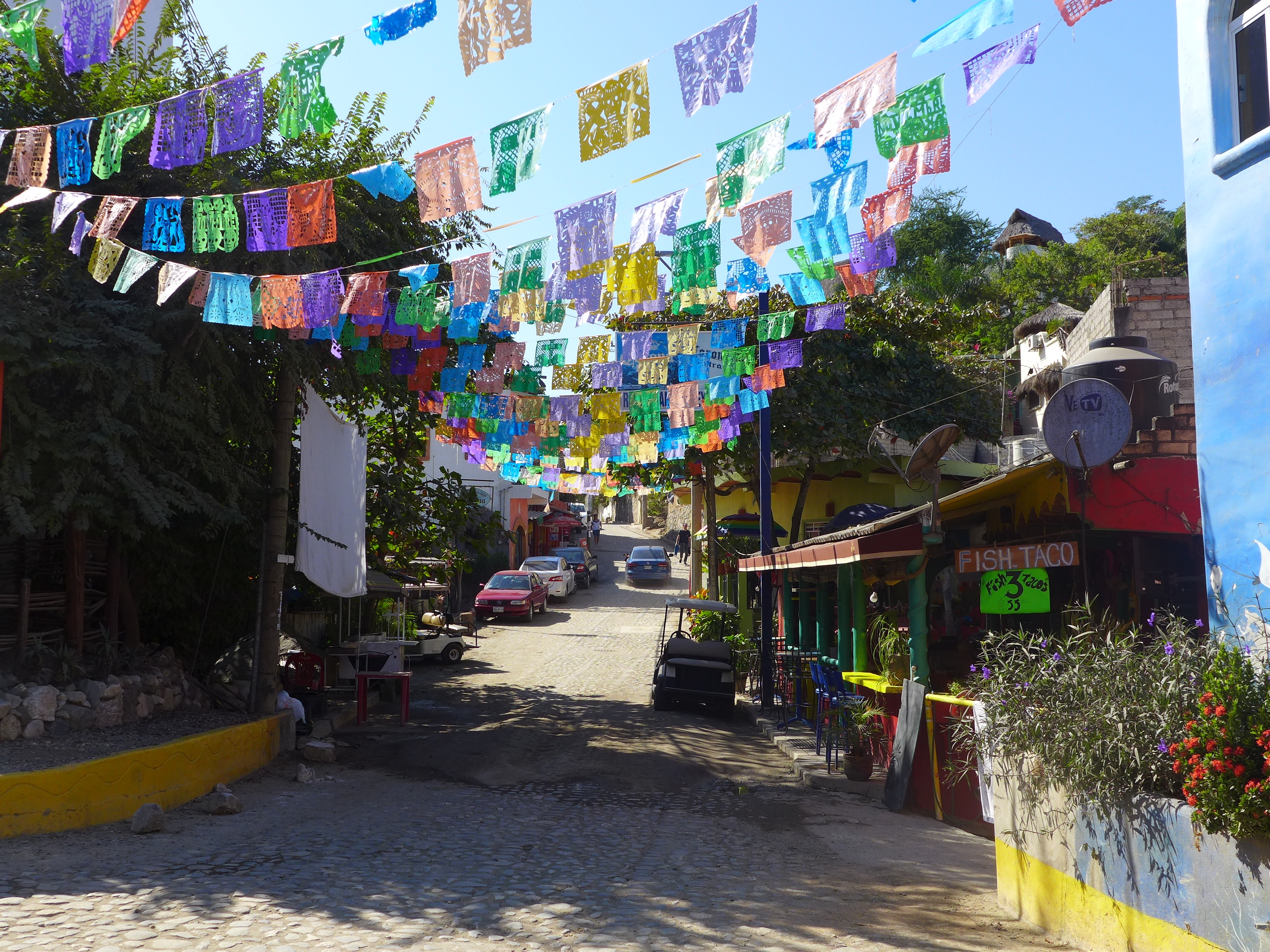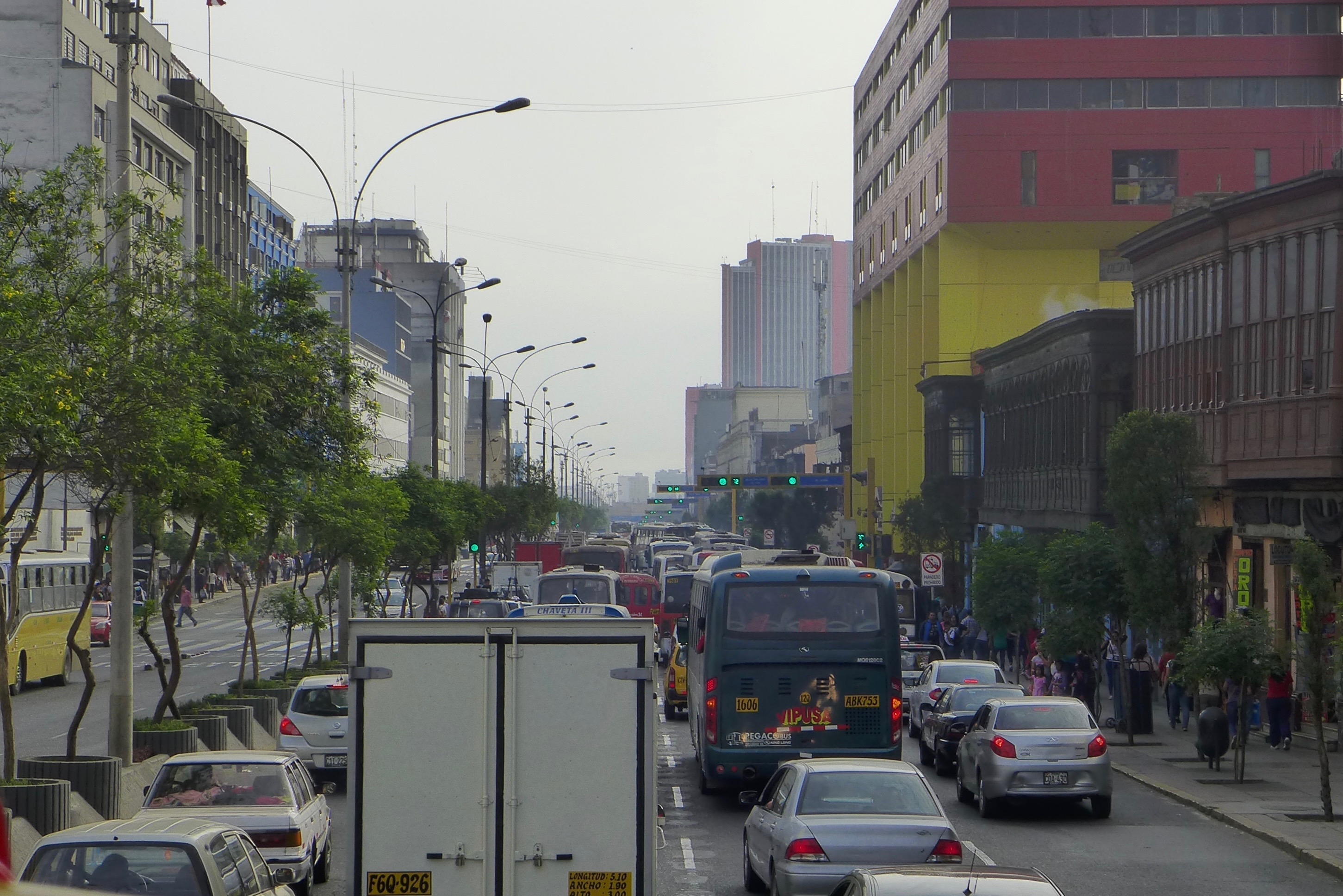I have struggled with what to write, to find my voice for this post and tell the story of our lives in Sayulita for the last three weeks. My block is partly due to the all-consuming news of the inauguration, Spanish language acquisition and because part of our story is about sickness. Stomach bugs, flu bugs and cold bugs (I’ve been down with the flu for the last three days).
As you know from my last post, landing in Sayulita was less than smooth. Turns out, according to some people we have met through the girls’ school, we are not the only family with a horror story upon arrival. It seems adversity is how Sayulita greets its new transplants. Our party hostel gave us quite the introduction to this beach pueblo and the wave of nauseous fear was unavoidable. What did we do? Despite the numerous warnings that this is a busy tourist town, I expected a magical, peaceful vibe and this was not it. Will I like Mexico? Two days in and I was already puking and now, for the past three weeks, we have each been sick with something. Is it Sayulita? Is it back to school? Is it Mexico?
I decided its airline travel and back-to-school. There are many tourists and transplants here that traveled during the holiday break and unknowingly brought back bugs. I know it is not just Sayulita because I just read an article about the Norovirus ripping through the US. Ok, so each little bug makes the immune system stronger, right?
 Other than sickness, we are also finding our rhythm. The girls started school and quickly made friends. We discovered that Quinn was in the wrong grade and moved her up to the second grade where she is thriving. Our house on the hill is an oasis and in the perfect location to get to most everything in town. Sayulita has calmed to a buzz rather than a roar. I discovered that the beach is gold and not just figuratively. There is a mineral in the sand that shimmers like gold when the sun hits it just right. Pyrite maybe?
Other than sickness, we are also finding our rhythm. The girls started school and quickly made friends. We discovered that Quinn was in the wrong grade and moved her up to the second grade where she is thriving. Our house on the hill is an oasis and in the perfect location to get to most everything in town. Sayulita has calmed to a buzz rather than a roar. I discovered that the beach is gold and not just figuratively. There is a mineral in the sand that shimmers like gold when the sun hits it just right. Pyrite maybe?
Mostly our focus has been on language, not only learning Spanish but also thinking about language in general. Language is connection and division, survival and desolation, inclusion and exclusion. While walking home the other day the song, “People are Strange” by The Doors popped into my head. You know how it goes:
“People are strange, when you’re a stranger. Faces look ugly, when you’re alone. Women seem wicked when you’re unwanted; streets are uneven when you’re down. When you’re strange. Faces come out of the rain. No one remembers your name. When you’re strange, when you’re strange, when you’re straaaange.”
(its in your head now too, isn’t it? You’re welcome.)
I thought about this song, not for reasons related to the angst of my young adulthood, but for the fact that I cannot speak to the local people here on a level other than basic needs for food and shelter. I cannot really know the people and their culture because I cannot speak proficiently to the locals living it nor can I reveal my true self to them. There is so much richness that is missed when you cannot speak the language. While it is almost impossible to speak the language of every country, some statistics report that there are over 400 million Spanish-speaking people in the world. It is the second most widely spoken language after Mandarin. So then why, being a person from a country that shares a continent with Mexico, can I not speak Spanish?
Well, for one thing I chose not to learn it in high school or college when it was offered. Really, the time to learn a second language is not solely in high school; the time to start is in elementary school. When we are born, our brains are primed to learn any language, in fact, multiple languages.
English is the most widely spoken language in the world; so why should we become bilingual? For me, it is the simple fact that the ability to speak another language helps to develop relationships and empathy for a person of another culture. According to a study I recently read, proficiency with at least one other language can not only help keep your brain strong but creates an opportunity for your personality to be more open and flexible. This same study also looked at how language impacts culture and identity in German speakers versus English speakers. Interestingly, in the Germanic language, the speaker often describes several events in one sentence and the verb for the main event is at the end. Often, this can change the entire picture that is being painted and, to fully understand, the listener must keep track of the whole idea. In general, this is how many German people view the world. They see the whole picture and take the long view when making decisions.
“Whenever the literary German dives into a sentence, that is the last you are going to see of him till he emerges on the other side of his Atlantic with his verb in his mouth” ~ Mark Twain
Conversely, in English, the action of the sentence is right up front and superfluous information is very often not included or is at the end (the woman walked to the store before going to school). Many English speakers are action oriented or focused on the consequences of the action taken now rather than the possible outcomes down the road.
We are in Mexico not only to have the experience of living in another culture for an extended period of time but also to become functional with the Spanish language. I wonder how the Spanish language impacts Latin cultures. We have discovered that many words used in Spain are not used in Mexico. I imagine this is true for many other Spanish-speaking countries as well. Additionally, how is the culture impacted when the country becomes influenced by another language such as English?
We knew upon arriving to Sayulita, that this is a Mexican beach pueblo highly impacted by Caucasian, English-speaking ex-patriots. In fact, I noticed that if we want to speak Spanish we have to search it out a little. While we are shopping or dining or conversing on the streets with a native person, they sometimes assume we want to speak English and often will begin in that tongue. We have to press forward in Spanish, even if it is broken and takes a minute to find the words, as sort of a message that no, even if we are Gringos we want to speak Spanish here in Mexico. That sounds crazy to me. While we were living in Sevilla, Spain, I was desperate to find someone who spoke English so that I could get medical treatment but here it seems I need to assert myself in order to speak Spanish.
On my first day of Spanish class, my instructor told me that from the start, we should establish ourselves as a Spanish speaking family no matter how broken it sounds. Otherwise, we will be boxed into the category of English-speaking ex-pats and it will be assumed we don’t want to try. On the other hand, I heard that the local Mexican people want to practice their English skills too. Their ability to speak English means more money for their families from tourism.
 It is no secret that there is much controversy in the US related to Mexico and immigration. The political sound bite “America First!” might sound good but I wonder if we can take a more German approach and see the potential pitfalls of cutting ourselves off from our Southern neighbors. Becoming a bilingual country filled with diversity (not that isn’t that way already) can make our brains and hearts more flexible, more open to seeing people as potential friends rather than strangers. I can’t help but wonder if anxiety has taken hold of our country. The classic behavior trait of a person who suffers from anxiety and panic is to isolate and close one’s self off to society in avoidance of those tense feelings in the body. However, all this does is create more anxiety because the fear of the outside world has been built up to an unrealistic level. For me, I am striving to become bilingual so that I can talk to my neighbors and be influenced by the beautiful Mexican culture. I want to be able to integrate that into our life and raise children who are open to embracing all people and able to speak with ease, to at least 400 million people from a culture other than their own.
It is no secret that there is much controversy in the US related to Mexico and immigration. The political sound bite “America First!” might sound good but I wonder if we can take a more German approach and see the potential pitfalls of cutting ourselves off from our Southern neighbors. Becoming a bilingual country filled with diversity (not that isn’t that way already) can make our brains and hearts more flexible, more open to seeing people as potential friends rather than strangers. I can’t help but wonder if anxiety has taken hold of our country. The classic behavior trait of a person who suffers from anxiety and panic is to isolate and close one’s self off to society in avoidance of those tense feelings in the body. However, all this does is create more anxiety because the fear of the outside world has been built up to an unrealistic level. For me, I am striving to become bilingual so that I can talk to my neighbors and be influenced by the beautiful Mexican culture. I want to be able to integrate that into our life and raise children who are open to embracing all people and able to speak with ease, to at least 400 million people from a culture other than their own.
“Our language is the reflection of ourselves. A language is a direct reflection the character and growth of its people” ~Cesar Chavez


